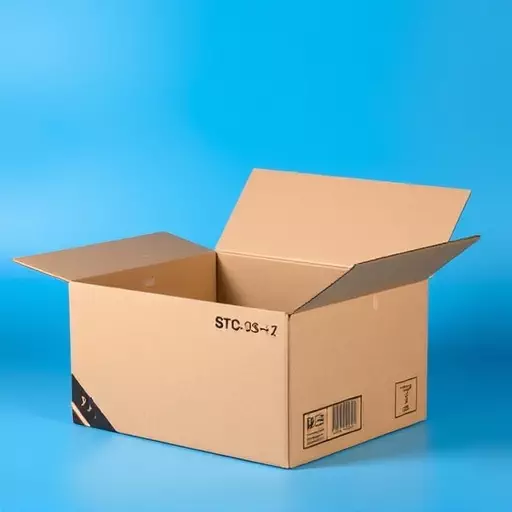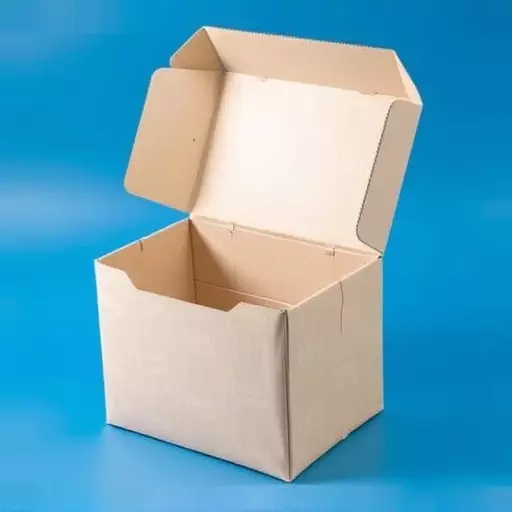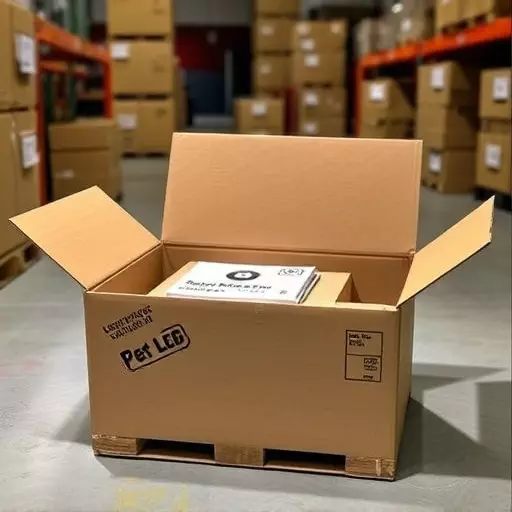Automotive packaging testing and certification in Holland, Ohio, are essential for ensuring vehicle safety, functionality, and reliability. Custom and reusable packaging solutions protect parts during manufacturing, transportation, and storage while meeting stringent industry standards. Holland's approach combines robust material strength with eco-friendly practices, positioning it as a global leader in automotive packaging certification. Through close collaboration between automakers and testing labs, innovative technologies, and sustainable design, Holland drives the future of automotive packaging towards improved performance, reduced environmental impact, and cost-effectiveness.
“Explore the critical realm of automotive packaging testing and certification, a cornerstone ensuring vehicle safety and sustainability. This comprehensive guide delves into the intricate process, highlighting its significance in the dynamic auto industry. From understanding essential tests to uncovering custom packaging solutions tailored for diverse vehicle needs, we navigate the landscape.
Discover the rising trend of reusable automotive packaging and its impact on environmental stewardship. Uncover certification standards specific to Holland, Ohio, and gain insights into overcoming common challenges. Lastly, peek into the future, where innovations and trends are reshaping the horizon of automotive packaging solutions.”
- Understanding Automotive Packaging Testing: The Importance and Process
- Custom Automotive Packaging: Tailoring Solutions for Specific Vehicle Needs
- Reusable Packaging in the Auto Industry: A Sustainable Approach
- Certification Standards for Automotive Packaging in Holland, Ohio
- Common Challenges in Automotive Packaging Testing and How to Overcome Them
- The Future of Automotive Packaging: Innovations and Trends
Understanding Automotive Packaging Testing: The Importance and Process

Automotive packaging testing and certification are critical processes that ensure the safety, functionality, and reliability of components and systems within vehicles. These tests verify that automotive packaging solutions in Holland, Ohio, meet stringent industry standards and regulations, from material strength to protective capabilities. Custom automotive packaging and reusable automotive packaging are two key aspects that manufacturers consider, aiming to optimize performance while minimizing environmental impact.
The process involves rigorous simulations designed to mimic real-world conditions, such as extreme temperatures, vibrations, and impacts. By subjecting packages to these challenges, engineers can identify potential weaknesses or failure points early in the development cycle. This proactive approach not only saves time and costs but also enhances overall vehicle safety by ensuring that every component is up to the task of protecting passengers and critical systems during operation and in case of accidents.
Custom Automotive Packaging: Tailoring Solutions for Specific Vehicle Needs

In the competitive automotive industry, every component and system matters, especially when it comes to safety and reliability. Custom automotive packaging plays a pivotal role in ensuring that vehicle parts are protected during manufacturing, transportation, and storage. Located in Holland, Ohio, leading manufacturers offer tailored solutions designed to meet specific vehicle needs. These custom packaging options consider unique part shapes, sizes, and weights, providing robust protection against damage and ensuring product integrity.
Reusable automotive packaging is a significant trend gaining traction in the industry. By adopting reusable containers, carriers, and dunnage, automotive companies can reduce costs, minimize waste, and enhance their environmental sustainability efforts. This approach not only aligns with global eco-friendly initiatives but also ensures consistent protection for parts throughout the supply chain, contributing to overall efficiency and cost savings.
Reusable Packaging in the Auto Industry: A Sustainable Approach

In recent years, the auto industry has embraced reusable automotive packaging as a sustainable approach to its supply chain. This shift is driven by both environmental and economic considerations. Traditional packaging materials contribute significantly to waste, while reusable solutions offer a more eco-friendly alternative. Custom automotive packaging from Holland, Ohio, and beyond is designed not only to protect vehicles during transportation but also to be used multiple times, reducing the overall environmental impact.
Reusable packaging for cars enables automakers to minimize their carbon footprint by cutting down on material usage and waste generation. By adopting these innovative solutions, companies can contribute to a greener future while potentially lowering costs. Custom-made reusable automotive packaging ensures that vehicles remain secure during transit, all while aligning with the industry’s growing demand for sustainable practices.
Certification Standards for Automotive Packaging in Holland, Ohio

In Holland, Ohio, the certification of automotive packaging is a stringent process designed to ensure safety and reliability across the entire automotive industry. The standards here are among the most rigorous in the world, setting a benchmark for quality and innovation in custom automotive packaging solutions. These guidelines cover every aspect, from material selection to design, manufacturing processes, and testing protocols, all aimed at enhancing product protection during transportation and storage.
The focus is not just on traditional packaging but also on reusable options, reflecting a growing trend towards sustainability. Holland’s certification process encourages the development of eco-friendly, durable automotive packaging that can be repurposed, reducing waste and environmental impact. This dual emphasis on custom solutions and green practices positions Holland as a leader in automotive packaging testing and certification, catering to both large manufacturers and niche specialty vehicle producers.
Common Challenges in Automotive Packaging Testing and How to Overcome Them

The world of automotive packaging testing and certification presents unique challenges due to the industry’s stringent safety and quality standards. One of the primary hurdles is ensuring that packaging solutions, such as custom automotive packaging or reusable options from Holland, Ohio-based manufacturers, can withstand rigorous handling and environmental conditions during transportation and storage without compromising structural integrity. This demands advanced testing methodologies to simulate real-world scenarios, including impact tests, temperature extremes, and moisture exposure.
To overcome these challenges, automakers and packaging providers must adopt a proactive approach. Collaborating closely with testing laboratories enables the development of comprehensive test plans tailored to specific vehicle parts and their respective packaging requirements. Utilizing innovative technologies, such as advanced robotics for precise testing and data analysis, can enhance efficiency and accuracy. Additionally, leveraging sustainable practices in custom automotive packaging design encourages the creation of reusable solutions, reducing waste and environmental impact while ensuring structural integrity through robust testing protocols.
The Future of Automotive Packaging: Innovations and Trends
The future of automotive packaging is shaped by a push towards sustainability and innovation. In response to growing environmental concerns, automakers and suppliers are exploring eco-friendly materials and designs, with an emphasis on reusable and recyclable solutions. Custom automotive packaging, specifically tailored for various vehicle components, will continue to evolve, optimizing space utilization and reducing weight to enhance fuel efficiency.
Trends point towards more sophisticated packaging technologies, such as advanced protective coatings and smart materials that can adapt to changing conditions. Reusable automotive packaging is gaining traction, with manufacturers adopting modular designs that facilitate easy disassembly and reassembly for various applications. These developments not only cater to the demand for sustainable practices but also offer cost-effective solutions for the ever-changing landscape of the automotive industry.


